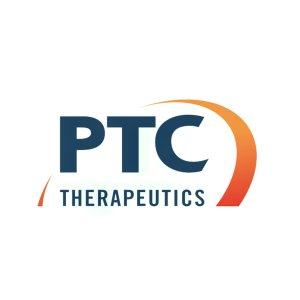PTC Therapeutics Announces FDA Acceptance for Filing of NDA for Sepiapterin for the Treatment of Pediatric and Adult Phenylketonuria Patients
Rhea-AI Summary
PTC Therapeutics (NASDAQ: PTCT) announced that the FDA has accepted for filing the New Drug Application (NDA) of sepiapterin for treating pediatric and adult patients with phenylketonuria (PKU). The NDA is based on the phase 3 APHENITY trial results, which showed a mean reduction in phenylalanine (Phe) levels of 63% in the overall treated population and 69% in classical PKU subjects. 84% of subjects achieved Phe control (<360 µmol/L) as per treatment guidelines, and 22% showed Phe level normalization.
The NDA also includes data from the APHENITY open-label extension study and the Phe tolerance sub-study. The latter demonstrated that about 60% of subjects achieved protein intake above the age-adjusted recommended daily allowance while maintaining Phe control, suggesting sepiapterin could enable diet liberalization for PKU patients.
Positive
- FDA acceptance of NDA filing for sepiapterin in PKU treatment
- Phase 3 APHENITY trial showed 63% mean reduction in Phe levels
- 84% of subjects achieved Phe control as per treatment guidelines
- 22% of subjects showed normalization of Phe levels
- 60% of subjects achieved higher protein intake while maintaining Phe control
Negative
- None.
News Market Reaction 1 Alert
On the day this news was published, PTCT declined 2.83%, reflecting a moderate negative market reaction.
Data tracked by StockTitan Argus on the day of publication.
"The FDA filing acceptance for sepiapterin is a critical milestone toward bringing this potential important therapy to children and adults living with PKU in
"NPKUA is deeply committed to improving the lives of individuals with PKU," said Catherine Warren, Executive Director, National PKU Alliance. "Our families have been anxiously waiting for new treatments that provide an opportunity to lessen their dependance on costly and burdensome diets. We are excited by today's news, as it brings us one step closer to providing another option for people of all ages with PKU to manage their condition."
The sepiapterin NDA is based on the highly statistically significant and clinically meaningful results from the phase 3 APHENITY trial. The results demonstrate a mean reduction in phenylalanine (Phe) levels of
About Sepiapterin
Sepiapterin (formerly PTC923), an oral formulation of synthetic sepiapterin, has a dual mechanism of action to increase activity of the phenylalanine hydroxylase (PAH) enzyme. First, sepiapterin is a precursor compound that is rapidly absorbed and converted intracellularly to tetrahydrobiopterin (BH4), a critical cofactor of PAH. Sepiapterin also has an independent chaperone effect, protecting against PAH misfolding to enhance the enzyme function. Through this dual mechanism of action, sepiapterin effectively reduces blood phenylalanine (Phe) levels and has the potential to treat the broad range of PKU patients.
About Phenylketonuria
Phenylketonuria (PKU) is a rare, inherited metabolic disease, which affects the brain. It is caused by a defect in the gene that helps create the enzyme needed to break down phenylalanine. If left untreated or poorly managed, phenylalanine – an essential amino acid found in all proteins and most foods – can build up to harmful levels in the body. This causes severe and irreversible disabilities, such as permanent intellectual disability, seizures, delayed development, memory loss, and behavioral and emotional problems. Newborns with phenylketonuria initially don't have any symptoms, but symptoms are usually progressive, and damage caused by toxic levels of phenylalanine in the first few years of life is irreversible. Diagnosis of phenylketonuria usually takes place during newborn screening programs. There are an estimated 58,000 people with phenylketonuria globally.
About PTC Therapeutics, Inc.
PTC is a global biopharmaceutical company focused on the discovery, development and commercialization of clinically differentiated medicines that provide benefits to children and adults living with rare disorders. PTC's ability to innovate to identify new therapies and to globally commercialize products is the foundation that drives investment in a robust and diversified pipeline of transformative medicines. PTC's mission is to provide access to best-in-class treatments for patients who have little to no treatment options. PTC's strategy is to leverage its strong scientific and clinical expertise and global commercial infrastructure to bring therapies to patients. PTC believes this allows it to maximize value for all its stakeholders. To learn more about PTC, please visit us at www.ptcbio.com and follow us on X, Facebook, Instagram and LinkedIn.
For More Information:
Investors:
Investor Relations
+1 (908) 912-9848
ir@ptcbio.com
Media:
Jeanine Clemente
+1 (908) 912-9406
jclemente@ptcbio.com
Forward-Looking Statement
This press release contains forward-looking statements within the meaning of The Private Securities Litigation Reform Act of 1995. All statements contained in this release, other than statements of historic fact, are forward-looking statements, including statements regarding: the future expectations, plans and prospects for PTC, including with respect to the expected timing of regulatory submissions and responses, commercialization and other matters with respect to its products and product candidates; PTC's strategy, future operations, future financial position, future revenues, projected costs; the extent, timing and financial aspects of our strategic pipeline prioritization and reductions in workforce; and the objectives of management. Other forward-looking statements may be identified by the words, "guidance", "plan," "anticipate," "believe," "estimate," "expect," "intend," "may," "target," "potential," "will," "would," "could," "should," "continue," and similar expressions.
PTC's actual results, performance or achievements could differ materially from those expressed or implied by forward-looking statements it makes as a result of a variety of risks and uncertainties, including those related to: the outcome of pricing, coverage and reimbursement negotiations with third party payors for PTC's products or product candidates that PTC commercializes or may commercialize in the future; expectations with respect to sepiapterin, including any regulatory submissions and potential approvals, commercialization, the potential achievement of development, regulatory and sales milestones and contingent payments that PTC may be obligated to make; significant business effects, including the effects of industry, market, economic, political or regulatory conditions; changes in tax and other laws, regulations, rates and policies; the eligible patient base and commercial potential of PTC's products and product candidates; PTC's scientific approach and general development progress; and the factors discussed in the "Risk Factors" section of PTC's most recent Annual Report on Form 10-K, as well as any updates to these risk factors filed from time to time in PTC's other filings with the SEC. You are urged to carefully consider all such factors.
As with any pharmaceutical under development, there are significant risks in the development, regulatory approval and commercialization of new products. There are no guarantees that any product will receive or maintain regulatory approval in any territory, or prove to be commercially successful, including sepiapterin.
The forward-looking statements contained herein represent PTC's views only as of the date of this press release and PTC does not undertake or plan to update or revise any such forward-looking statements to reflect actual results or changes in plans, prospects, assumptions, estimates or projections, or other circumstances occurring after the date of this press release except as required by law.
![]() View original content:https://www.prnewswire.com/news-releases/ptc-therapeutics-announces-fda-acceptance-for-filing-of-nda-for-sepiapterin-for-the-treatment-of-pediatric-and-adult-phenylketonuria-patients-302263975.html
View original content:https://www.prnewswire.com/news-releases/ptc-therapeutics-announces-fda-acceptance-for-filing-of-nda-for-sepiapterin-for-the-treatment-of-pediatric-and-adult-phenylketonuria-patients-302263975.html
SOURCE PTC Therapeutics, Inc.







